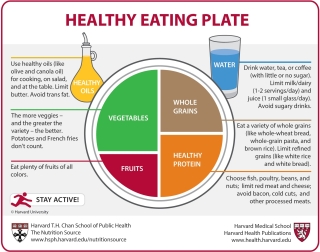Entrepreneurship student talks about work-life (and school) balance, self-care and general well-being
Eight best practices to optimize your well-being, prevent burnout and achieve a harmonious work-life (and school) balance
It’s one thing to balance work and life. It's a whole other animal when you add school to the mix, and as a working grad student, Jessica was not prepared for this. She was a full-time employee when she entered the MBA in Entrepreneurship program at CSUSB. "I worked a typical 8-5 job, and my school schedule fit in perfectly, with all my classes in the evening on a couple of nights per week. I thought to myself, “This works out! I will go straight from work to school, and I won’t even need to change my schedule with work."

This is what she had to say about her first few weeks, "Now, I’ll admit that my job at the time wasn’t my “dream job.” It paid the bills, but it was not something I considered a long-term career. I had other aspirations with my entrepreneurial spirit. But, something was missing. I felt tired; I was always calling in sick, not because I was sick. I was exhausted, and it was clear that my work was suffering. It became easier to be absent and focus where my mind was, which was grad school, where I was thriving and maintaining a strong average. By the end of my first quarter, I faced a difficult decision. I had to give up something because I felt overwhelmed like I was carrying too much. I wasn’t going to give up school, because I had worked too hard for it, it was where I wanted to be, and I knew it was a stepping stone for my bigger goals. So, it was my job that I gave up."
Was that the right thing to do? She didn’t know if there was a right or wrong answer to this, but at the time, she was convinced that it was the only option for her. What was missing? A sense of balance. Jessica did not have a healthy balance between life, work and now school. There was no structure, and she was constantly in reactive mode, which is the perfect recipe for burnout. And that’s just what happened to her.
She couldn't help but wonder if she had implemented practices to instil a better work-life balance, would she have quit? Possibly not. She realized that many students might be in these shoes. But, she does not have to be faced with the same difficult decision of choosing between her job and school. "In a world that has become increasingly virtual over the past year, many spend more time at home, working from home, doing classes from home, and other household members. The lines between each of our roles have become very blurred, and the topic of work-life balance has become ever more important, and this is why I’d like to share eight best practices to optimize your well-being, prevent burnout and achieve a harmonious work-life balance."
Here is what she learnt...
SELF-CARE IS NOT SELFISH

The notion of self-care has gained popularity recently, especially given the challenges faced by a global pandemic. With competing priorities with the roles we play in our lives, it is easy to feel consumed with guilt in taking care of oneself. We must acknowledge that self-care is not selfish. In reality, not doing some self-care for yourself on a daily basis is going to be a detriment to the roles and responsibilities that you have in your life. When you suffer, everything else will feel the effects. It is important to care for ourselves so that we can show up as our best selves in every aspect of our lives. There are several practices that we can do on a daily basis to support self-care and protect our well-being, and it doesn't have to be complicated. In fact, it can be quite simple.
1. Sleep
This is probably the area most neglected by adults. According to the CDC, insufficient sleep is actually a public health epidemic. It is a common problem with 25 per cent of U.S. adults reporting insufficient sleep. Sleep is an important aspect of our health and well-being and is necessary for proper immune function, among many other things. Inadequate sleep is associated with decreased productivity and errors, including traffic accidents. So it is important that we get the proper amount of sleep to perform well in school and to work effectively and safely. So exactly how much sleep do we need? Most average adults require between 7-8 hours of sleep per evening. Anything under 6 hours is considered short sleep and that’s when we start to experience the ill effects of lack of sleep. Let’s face it, sometimes it happens. We are up late working on a project, a term paper, or studying for a big exam. Try not to make a habit of it, but on evenings like this, try to get at least 6 hours of sleep, but shoot for 7-8 on most nights. Implement good sleep hygiene to help you get some shut-eye. Keeping your bedroom cool and dark, and sticking to a consistent bedtime and waking time, will help to improve your sleep health.
2. Nutrition
One of the most important ways to support your health is by eating a diet composed of whole foods and avoiding the processed foods associated with the standard American diet. This is one of the most difficult areas of wellness due to the discipline and consistency it takes to develop good eating habits. Choosing the right foods, and in a way that is closest to the way, nature made them, can boost your health and immunity while you tackle school. With a little bit of planning, eating a nutritious diet can be accessible. Consider having healthy snacks on hand to keep you satisfied when you’re on the go, and to avoid resorting to processed convenience foods. Adequate water intake is also an important aspect of nutrition, in keeping you healthy, as it prevents dehydration which is associated with unclear thinking and mood changes. Keep a refillable water bottle with you that is filled with ice-cold water, and add a wedge of lemon to make it more palatable. Following the guidance of the Healthy Eating Plate, from Harvard’s School of Public Health, can help you to make the right food choices.

3. Movement
Between advances in technology, an increasingly virtually connected world and a global pandemic, we find ourselves leading increasingly sedentary lives. When working from home, you may not even need to get out of bed, and you can literally go from work to school with a few clicks on your device. Some experts liken sitting to “the new smoking,” as prolonged sitting has been shown to be a risk factor linked to early death. In a typical office job, workers spend more than half of the day seated. So, how much movement should we be getting? According to the U.S. Department of Health and Human Services, the minimum guidelines for physical activity are 150 minutes per week of moderate-intensity activity. Getting daily movement can improve many aspects of our health, including cognitive skills and the ability to concentrate and pay attention. There are a number of ways that we can add movement to our day, even if we have a desk job, or are working and taking classes from home. And, it doesn’t need to involve going to a gym and pumping iron! Consider the 20-8-2 rule, developed by Dr Allan Hedge, Professor of Ergonomics at Cornell University, which says that every 20 minutes you spend sitting, get up and stand for 8, and move for 2. I recommend setting an alarm reminder every 30 minutes to remind you to get up, stretch your legs, and engage in light movement or stretches. You may even try standing during your lectures and conference calls, or better yet, take these activities outside for a walk in nature.
4. Stress Management
The human body is designed to handle small amounts of stress, but when stress becomes long-term, it can have serious implications. Coping with stress starts with recognizing when and how we are reacting to a stressor, and taking steps to react healthily. There are many effective strategies for reducing stress and managing our response to it, by inducing the body’s natural relaxation response and increased feelings of well-being. Breathing exercises are one of my favourite ways to cope with stress because they can be done at any time, whether you are in the midst of a board meeting, or in the middle of an exam at school. To help down-regulate the nervous system and lower blood pressure, consider doing a few cycles of “lunar” breathing. To do this, simply breathe in and out through the nose and allow yours exhales to become longer than your inhales. Try inhaling for a count of 2 and then slowly breathe through the nostrils for a count of 4. Meditation is also a powerful practice for combating feelings of anxiety that are associated with stress. Meditation involves a comfortable posture (like sitting or lying down), focused attention (like the breath or a specific thought) and a space that is free of distractions. Contrary to popular thought, meditation does not need to take a long time, and you can feel its effects in just a few minutes daily. One of my favourite ways to practice meditation is in a parked car (never while driving!) which works perfectly if you are between activities and need to decompress. There are many free guided meditation apps, and you can find many free meditations on Youtube.
5. Optimize Your Workspace
Our environment plays a huge role in our productivity. Think of the times when you had a cluttered workspace versus a clean and tidy one. Chances are, you felt more inspired to work or study in the latter. If working or studying from home, ensure that you have a dedicated space free of distractions. If you don’t have a spare room, you can simply convert a small corner of a room into a workspace. Feel free to get creative with this; I have turned a corner of my closet into my “office”! Sometimes we get creative blocks when working on a work or school project, or a paper. When this happens, shift your perspective, literally. Consider taking your laptop outside. The sunlight and fresh air can be just what you need to return to your activity with a sense of inspiration. If you can’t get outside, creating a slight change in your environment can be as simple as changing rooms, or even shifting to sitting on a different side of your desk.
6. Time Management
We have only 24 hours in a day, however, we are faced with the competing priorities of the various roles we play in our day-to-day lives. One moment we may be wearing our student hats. At another moment, we may be wearing our [insert your career] hats. And other times, we play our life roles with our families and loved ones. In order to manage time, I like to do time-blocking to help me clarify what my roles are, and the tasks associated with those roles, and define a block of time that I will play (and only that role). I do this activity before the start of my day, which has been instrumental in keeping me focused and on task. This also eliminates my preoccupation with all of my to-do’s for the day and thereby eliminates my perceived need to multitask. To do this, simply divide a sheet of paper into four quadrants (or however many grids are needed to represent each of your daily roles). Title each quadrant with the role, and then list the tasks in each of their respective role “buckets”. Assign specific time blocks to each role and then only focus on the tasks/to-do’s in each bucket during the time specified. Additionally, it is important that we keep clear work hours with defined start and end times. This will help to eliminate competing priorities and other distractions, along with the temptation to multitask. Even when working from home, it is important to take breaks from work and school. Never work through lunch, and take your lunch break away from your desk (and your work devices). We are not paid to work through lunches, so take 30 minutes to an hour for yourself. This is time for you to reset.
7. Support
Humans are pack animals, wired for social connection. Maintaining your own social support network composed of individuals with which you have healthy relationships, can be an important factor in buffering the negative effects of stress related to work and school. When we experience social isolation, our emotional health can suffer, leading to health issues in other areas. This is so important, especially given the events of the past year, and having been socially distanced from our normal daily contacts, including friends and loved ones that make up our support systems. Talking to someone about how you are doing and receiving support can make you feel better. Others who have shared your experience may be able to brainstorm ideas with you or give helpful advice. They may also be struggling and giving them support can also be very therapeutic to you. I recommend dedicating time at least weekly to spend time with those you care about so that you can support each other with compassion. Your contacts act as a mirror to you and may reflect things you may not see, such as early warning signs of burnout. Consider how you can make it a point weekly to ensure that you spend quality, undistracted time with your family and friends. Get creative with this. Especially right now, the connection doesn’t necessarily have to be in person. We can connect using many forms of technology. Keep in mind that another form of support is the services that you can draw on from professional providers. This includes a wide variety of providers in healthcare, wellness, legal, financial, and any other key service areas that will help to enhance and support your well-being while you are in school. I recommend leaning on services at least monthly, so consider which types of providers could help support you, based on their expertise. If you find that you are struggling in an area, do not be afraid to be vulnerable to admit it and recognize when you need help. If you are struggling at school, speak with your professors. Talk to your work manager if you need extra time to complete a deliverable. We tend to forget that just as we are willing to help others and strategize solutions, so are others willing to help us. You never know unless you ask, and the answer is always “no” if you do nothing.
8. Your WHY
As cliche as getting to know “your why” has become, I really do believe in the power of getting clear on your mission, purpose and goals. We all know that certain activities will move us closer to achieving our goals, and others will pull us in the opposite direction. If your goal at this moment is to graduate on time, then consider what activities must happen for you to ensure that your mission, purpose and goals are met. Likewise, set boundaries where necessary to block out any activities that pull you away from achieving your goals. Remember that “No” is a complete sentence and, saying “no” to something allows you to say “yes” to something else. Well-being works the same way. It is a journey, rather than a static state and the most important thing is that you are facing in the right direction, moving towards achieving well-being and balance.
Illness-Wellness Continuum
A major component of well-being is having a sense of meaning and purpose. By going to school and partaking in meaningful activities that will fulfil your purpose in graduating, you are already a step in the right direction. So applaud yourself for this accomplishment!
REMEMBER, YOU CAN DO IT ALL. JUST NOT AT THE SAME TIME.

As a working student, I had the confidence that I could do it all, but I had no balance, no boundaries or structure, and it led to me burning out. I wish I had this direction when I was in school, and that’s why it’s so important to me to share this information with you, in hopes that you can pick up a couple of strategies to apply to your life to help with your well-being so that you perform at your best at work, school, and any other areas of your life. Please do not feel like you need to be implementing all of these practices. They are simply that - practices that you can turn to when you feel it is appropriate. Well-being and our sense of balance do not happen overnight and are not something that will ever be perfected. However, by having a sense of self-awareness and knowing how to apply practices, we can better manage any feelings of overwhelm, prevent burnout, and achieve a harmonious work-life balance. One day, you will look back and miss your time on campus (physically or virtually). I encourage you to remind yourself that any feelings of overwhelm are temporary. Remain present, enjoy each moment, and practice gratitude for this opportunity and those to come.

